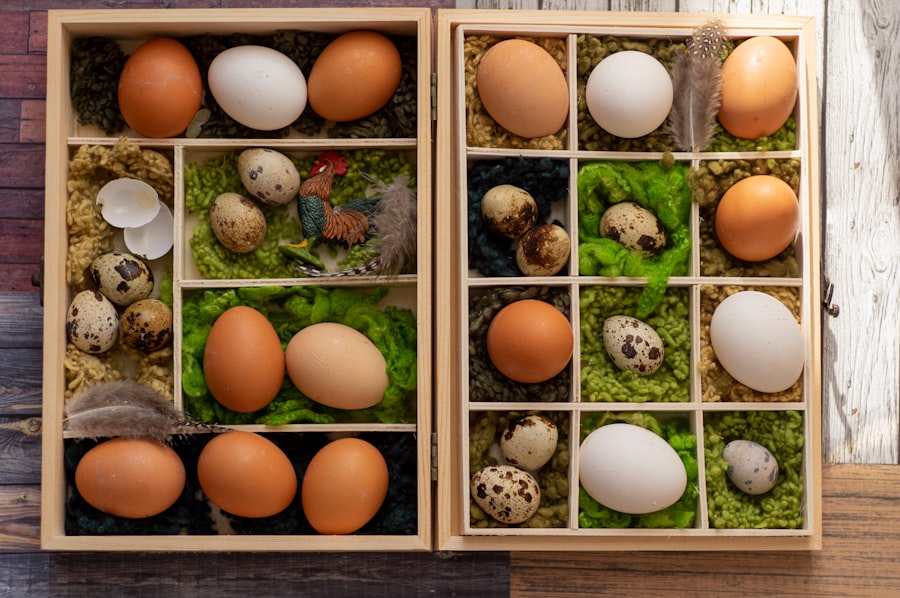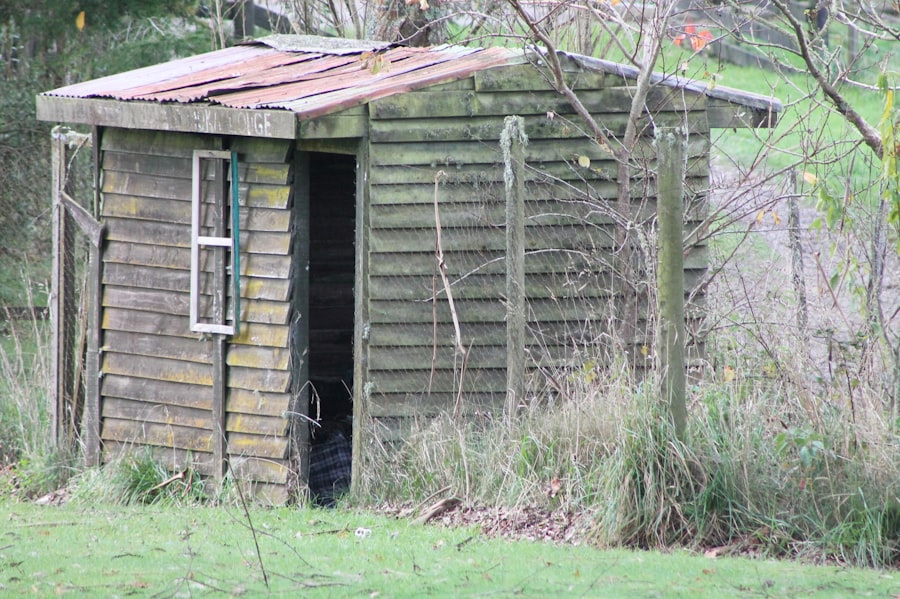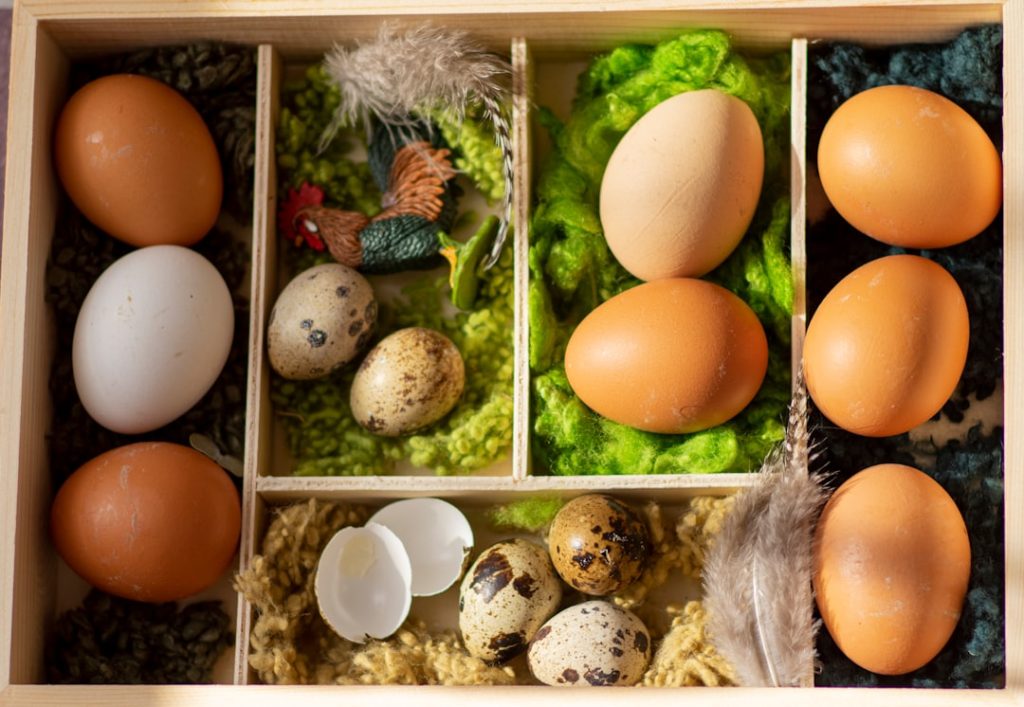When selecting a chicken coop, several factors must be considered. The size of the coop is crucial, with a general guideline of 2-3 square feet per chicken, though more space is beneficial. Proper ventilation is essential to maintain air quality and prevent ammonia buildup from droppings.
The coop should also provide adequate insulation and protection from local weather conditions. The choice of construction material is another important aspect. Coops can be made from wood, metal, or plastic, each with its own advantages and drawbacks.
Wood offers natural insulation but may require more maintenance and is susceptible to rot. Metal coops are durable and easy to clean but may provide less insulation. Plastic coops can be lightweight and low-maintenance but may not be as sturdy as other options.
The ideal coop will depend on specific requirements and preferences. It is advisable to thoroughly research and evaluate all available options before making a decision. Factors such as local climate, number of chickens, budget, and long-term maintenance should all be taken into account when choosing a chicken coop.
Table of Contents
Key Takeaways
- When choosing a coop, consider the size, material, and location to ensure it meets the needs of your flock.
- Adequate space and ventilation are crucial for the health and well-being of your chickens, so make sure the coop is spacious and well-ventilated.
- Regularly clean the coop and provide proper hygiene to prevent the spread of diseases and parasites among your chickens.
- Ensure your chickens have access to proper nutrition and clean water to support their growth and overall health.
- Implement safety measures such as predator-proofing the coop and providing secure fencing to protect your chickens from harm.
- Regularly monitor the health and wellness of your chickens to detect any signs of illness or distress early on.
- Provide enrichment and entertainment for your chickens to keep them mentally and physically stimulated, such as perches, toys, and access to outdoor areas.
Providing Adequate Space and Ventilation
Space to Move Around
One of the most critical aspects of keeping chickens healthy and happy is providing them with adequate space. Chickens that are overcrowded can become stressed and more susceptible to disease, so it’s crucial to ensure that your coop has enough room for all of your birds to move around comfortably. As a general rule of thumb, you should allow for at least 2-3 square feet of space per chicken, but more space is always better if possible.
Ventilation for Good Air Quality
Additionally, providing ample ventilation in the coop is essential for maintaining good air quality and preventing the buildup of harmful gases like ammonia. When it comes to ventilation, there are several options to consider. Many coops are equipped with windows or vents that can be opened to allow for airflow, while others may have built-in ventilation systems.
Fresh Air for a Healthy Flock
Whichever option you choose, it’s important to ensure that there is enough ventilation to keep the air inside the coop fresh and clean. This can help prevent respiratory issues and other health problems in your chickens. Ultimately, providing adequate space and ventilation is essential for creating a healthy and comfortable living environment for your flock.
Maintaining Cleanliness and Hygiene

Maintaining cleanliness and hygiene in your chicken coop is essential for keeping your birds healthy and preventing the spread of disease. Regular cleaning and maintenance can help prevent the buildup of harmful bacteria and parasites, as well as reduce the risk of respiratory issues in your flock. One of the most important aspects of coop cleanliness is keeping the bedding clean and dry.
This can help prevent the growth of harmful bacteria and fungi, as well as reduce the risk of pests like mites and lice. In addition to keeping the bedding clean, it’s also important to regularly clean and sanitize the coop itself. This includes removing any droppings or soiled bedding, as well as scrubbing down surfaces with a disinfectant to kill any remaining bacteria or parasites.
It’s also important to regularly inspect the coop for any signs of damage or wear and tear, as these can create hiding places for pests and bacteria. By maintaining cleanliness and hygiene in your coop, you can help ensure that your chickens stay healthy and happy.
Providing Proper Nutrition and Water
Proper nutrition is essential for keeping your chickens healthy and productive. A balanced diet can help support egg production, feather quality, and overall health in your flock. When it comes to feeding your chickens, it’s important to provide a high-quality commercial feed that is specifically formulated for their needs.
This feed should contain a balance of protein, carbohydrates, vitamins, and minerals to support their growth and development. In addition to commercial feed, it’s also important to provide your chickens with access to fresh water at all times. Chickens can drink a surprising amount of water each day, especially during hot weather or when laying eggs, so it’s crucial to ensure that they always have access to clean water.
In addition to providing water for drinking, you may also want to consider providing supplemental treats or scratch grains to give your chickens some variety in their diet. However, it’s important to remember that these should only be given in moderation and should not replace their main feed. By providing proper nutrition and access to clean water, you can help ensure that your chickens stay healthy and productive.
Ensuring Safety and Security
Ensuring the safety and security of your chickens is essential for protecting them from predators and other potential dangers. One of the most important aspects of chicken safety is providing a secure coop that is predator-proof. This means ensuring that the coop is constructed from sturdy materials and has secure latches on all doors and windows.
Additionally, it’s important to regularly inspect the coop for any signs of damage or wear and tear that could compromise its security. In addition to securing the coop itself, it’s also important to provide a safe outdoor area for your chickens to roam. This can be achieved by installing a secure fence around their outdoor space to prevent access from predators like foxes, raccoons, or birds of prey.
It’s also important to provide adequate shelter within their outdoor area to protect them from the elements and provide a safe place to roost. By ensuring the safety and security of your chickens, you can help provide them with a safe and comfortable living environment.
Monitoring Health and Wellness

Daily Observation of Behavior
One of the most effective ways to monitor your chickens’ health is by observing their behavior on a daily basis. This includes watching for any changes in their eating or drinking habits, as well as monitoring their activity level and overall demeanor.
Regular Inspection for Signs of Illness or Injury
In addition to observing their behavior, it’s essential to regularly inspect your chickens for any signs of illness or injury. This includes checking their feathers, skin, eyes, and vent for any abnormalities or signs of parasites.
Monitoring Egg Production and Quality
It’s also vital to monitor their egg production and quality, as changes in these factors can be an indicator of underlying health issues. By monitoring your chickens’ health and wellness on a regular basis, you can help ensure that any potential issues are caught early and addressed promptly.
Implementing Enrichment and Entertainment
Implementing enrichment and entertainment activities for your chickens can help keep them mentally stimulated and prevent boredom. Boredom can lead to negative behaviors like feather picking or aggression, so it’s important to provide activities that keep your chickens engaged and entertained. One simple way to provide enrichment is by providing perches or roosts within the coop or outdoor area for your chickens to climb on and explore.
In addition to perches, you may also want to consider providing toys or other items for your chickens to peck at or interact with. This can include hanging treats or vegetables for them to peck at, as well as providing objects like mirrors or hanging balls for them to play with. Another way to provide enrichment is by allowing your chickens access to a variety of natural materials like grass, dirt, or sand for them to scratch and dust bathe in.
By implementing enrichment and entertainment activities for your chickens, you can help keep them mentally stimulated and prevent negative behaviors associated with boredom. In conclusion, choosing the right coop for your chickens is essential for creating a healthy and comfortable living environment for your flock. Providing adequate space and ventilation, maintaining cleanliness and hygiene, providing proper nutrition and water, ensuring safety and security, monitoring health and wellness, and implementing enrichment and entertainment activities are all crucial aspects of responsible chicken care.
By taking these factors into consideration and implementing best practices for chicken husbandry, you can help ensure that your flock stays healthy, happy, and productive for years to come.
If you’re looking for tips on how to keep chickens in the coop, you might want to check out this article on farmhouse chicken coop from Poultry Wizard. It provides valuable information on creating a comfortable and secure environment for your chickens.
FAQs
What are the benefits of keeping chickens in a coop?
Keeping chickens in a coop provides them with protection from predators, shelter from harsh weather conditions, and a designated space for laying eggs. It also helps to keep the chickens contained and prevents them from wandering into areas where they may cause damage.
How big should a chicken coop be?
The size of a chicken coop depends on the number of chickens being kept. As a general rule of thumb, each chicken should have at least 2-3 square feet of space inside the coop. Additionally, there should be space for nesting boxes, perches, and a run area for the chickens to move around.
What should be included in a chicken coop?
A well-equipped chicken coop should include nesting boxes for egg-laying, perches for roosting, proper ventilation to maintain air quality, and access to food and water. It should also have a secure door to keep predators out and the chickens in.
How do you maintain a clean chicken coop?
Regular maintenance of a chicken coop involves removing soiled bedding, cleaning nesting boxes, and ensuring proper ventilation to prevent the buildup of ammonia from chicken droppings. It’s also important to regularly check for signs of pests and parasites and to keep the coop dry and free from mold.
What should be considered when choosing a location for a chicken coop?
When choosing a location for a chicken coop, it’s important to consider factors such as protection from predators, access to sunlight, and proximity to the owner’s home for easy monitoring and care. The coop should also be situated on well-drained ground and away from areas that may flood during heavy rain.
Meet Walter, the feathered-friend fanatic of Florida! Nestled in the sunshine state, Walter struts through life with his feathered companions, clucking his way to happiness. With a coop that’s fancier than a five-star hotel, he’s the Don Juan of the chicken world. When he’s not teaching his hens to do the cha-cha, you’ll find him in a heated debate with his prized rooster, Sir Clucks-a-Lot. Walter’s poultry passion is no yolk; he’s the sunny-side-up guy you never knew you needed in your flock of friends!







